- News
- Reviews
- Bikes
- Components
- Bar tape & grips
- Bottom brackets
- Brake & gear cables
- Brake & STI levers
- Brake pads & spares
- Brakes
- Cassettes & freewheels
- Chains
- Chainsets & chainrings
- Derailleurs - front
- Derailleurs - rear
- Forks
- Gear levers & shifters
- Groupsets
- Handlebars & extensions
- Headsets
- Hubs
- Inner tubes
- Pedals
- Quick releases & skewers
- Saddles
- Seatposts
- Stems
- Wheels
- Tyres
- Tubeless valves
- Accessories
- Accessories - misc
- Computer mounts
- Bags
- Bar ends
- Bike bags & cases
- Bottle cages
- Bottles
- Cameras
- Car racks
- Child seats
- Computers
- Glasses
- GPS units
- Helmets
- Lights - front
- Lights - rear
- Lights - sets
- Locks
- Mirrors
- Mudguards
- Racks
- Pumps & CO2 inflators
- Puncture kits
- Reflectives
- Smart watches
- Stands and racks
- Trailers
- Clothing
- Health, fitness and nutrition
- Tools and workshop
- Miscellaneous
- Buyers Guides
- Features
- Forum
- Recommends
- Podcast
review
 Merida Crossway 300
Merida Crossway 300£885.00
VERDICT:
Dependable, friendly hybrid with comfort-boosting features and huge gear range, if a bit heavy
Comfy thanks to suspension post & fork
Huge gear range
Decent hydraulic disc brakes
Great colour
No rack, mudguards etc
Triple chainset could be confusing
Heavy
Weight:
13,740g
Contact:
At road.cc every product is thoroughly tested for as long as it takes to get a proper insight into how well it works. Our reviewers are experienced cyclists that we trust to be objective. While we strive to ensure that opinions expressed are backed up by facts, reviews are by their nature an informed opinion, not a definitive verdict. We don't intentionally try to break anything (except locks) but we do try to look for weak points in any design. The overall score is not just an average of the other scores: it reflects both a product's function and value – with value determined by how a product compares with items of similar spec, quality, and price.
What the road.cc scores meanGood scores are more common than bad, because fortunately good products are more common than bad.
- Exceptional
- Excellent
- Very Good
- Good
- Quite good
- Average
- Not so good
- Poor
- Bad
- Appalling
The Merida Crossway 300 is a comfortable, friendly barebones hybrid with a huge gear range, excellent equipment and a dependable ride, albeit a bit heavy. The lack of extras like mudguards and rack is niggling, but you can always choose better ones than ever get fitted as original equipment. And it's a great colour!
Maybe you don't like green, though… for more options, check out our guides to the best hybrid bikes and best commuter bikes.
> Buy now: Merida Crossway 300 for £885 from Tredz
Ride
This is the bit in a bike test where we usually go on about how stiff and responsive a bike is (if we're feeling really cliched we'll mention that it's laterally stiff and vertically compliant); it's where we talk about the alacrity with which it transforms effort into motion, about how it seems to just gambol and flounce up hills while remaining rock steady at 50mph on descents and just how downright exciting it is to ride.
Yeah, no. Not the Crossway 300.
Thing is, you don't want a practical flat-barred bike like this to be exciting. Fun, yes, and it is. Enjoyable, sure, that too. But let's save your actual sensations of excitement for featherweight carbon fibre speedsters. I want a bike like this to be solid, reassuring, wholesome, and friendly – and that's exactly what the Crossway 300 is.
This is a bike that goes where you point it without any fuss or hassle. In handling terms it Just Works™ and that's a very good thing.
The riding position is quite upright, which is nice for sitting and looking at the scenery, maybe less so for the dash to work. You can always fit a longer stem or tweak the bar position with the adjustable stem. You change the angle of the stem by just loosening and tightening one hex bolt, though major changes will require you to turn the handlebar too. I've seen lots of frankly dire implementations of this idea over the years, with stems that wouldn't tighten properly or that would come loose while riding, but the stem Merida has fitted here is problem free.
One downside compared to some rivals is that at almost 14kg it's quite heavy. The Boardman HYB 8.8 is 11.4kg and the Specialized Sirrus X 3.0 even lighter at 11.13kg. The Crossway 300's extra pork comes from the suspension fork and seatpost, and that adjustable stem. This blunts the Crossway 300's acceleration a little, though I don't expect a bike like this to respond like a carbon superbike anyway; but you're really going to notice it if you have to lug the Crossway 300 up the steps at a train station or over one of the bizarrely bike-hostile bridges that infest the National Cycle Network.
Tarmac is the natural home of a bike like this, but with its deep-treaded tyres and steady handling it works really well on trails too, as long as they're not rocky or muddy; my local bridleways and byways were ideal. There's plenty of room for fatter tyres too, up to 50mm, which means you could fit rubber from the skinnier end of the mountain bike range and tackle more technical trails, or go for gert big slicks for ultimate road comfort.
Frame
Pulling the Crossway 300 out of its box my first reaction was 'Ooh, pretty!' Sure, I'm shallow, but the shade of shimmering forest green Merida has landed on here is just NICE. There aren't enough green bikes around, in my opinion.
The green paint covers a frame welded from good old 6061 aluminium. People have been making bike frames from 6061 since at least the 1970s when Gary Klein built his first oversized frames. It's about as well studied as a bike frame material gets. Merida uses various forming processes to make it into butted and shaped tubes. Some joints also get a second pass of the welding torch to smooth them over, though on the Crossway 300 that prettification has only been done to the seat cluster. The other welds are nevertheless tidily stippled like TIG-welded joints should be.
The frame's well provided with attachment points for stuff – there are rack and mudguard eyes, two sets of bottle bosses, seatstay mounts for a frame lock, kickstand mounts and a pair of bolts under the top tube for a carrying a widget like the 76Projects Micro Piggy.
I'm always sceptical about suspension on hybrids. Cheap suspension forks and seatposts often add weight without bringing much function to the party, and there's no room in the budget of a £900 bike for a really good fork and post. However, the SR SunTour fork and Merida own-brand seatpost here do a fair job of taking the edge off potholes, and the way winter has trashed the roads round here, that's a welcome comfort improvement.
Components
The Crossway 300 has a collection of mountain bike components, or their trekking versions, centred on a triple chainset. That's a fairly unusual choice in 2023, but it seems triples are still popular in Merida's main markets in Europe.
With chainrings of 48, 36 and 26 teeth and an 11-34 cassette it provides a 570% gear range. That's huge! And the low gear of 26x34 (a ratio of 0.76, or 21 gear inches, or a development of 1.68m, depending on how you like your gears expressed – read more about that in our feature about bike gears) is as low as you'll find on anything but a mountain bike.
However, I see so many people on hybrids with triples grinding along in the big ring – even uphill – that I do wonder if an ultra-wide mountain bike setup with a single chainring wouldn't be a better idea for most. Shimano's Deore 12-speed system has a 510% gear range with just one gear shift control to operate. Merida uses it on the £1,000 Big Nine 80 mountain bike, with a better suspension fork than the Crossway 300's, so the cost of the 12-speed system shouldn't be a major blocker here.
> How to get ultra-low gearing
Stopping is handled by a basic but very functional pair of Tektro HD-M275 hydraulic disc brakes. They've a soft, easily modulated feel, plenty of stopping power and a reach-adjuster tucked away inside the lever.
Like Shimano's brakes, they use mineral oil. They also look a lot like some of Shimano's inexpensive brakes, to the point where you have to wonder who's manufacturing what for whom.
The Crossway 300 rolls on a pair of Merida's own wheels with in-house Comp TK rims on Shimano TX505 hubs. This is solid, dependable stuff. The rims are 20mm wide (internal) which boosts lateral strength, and the hubs have Shimano's classic cup-and-cone bearings which reward regular maintenance with long life.
They're shod with Maxxis Overdrive Excel tyres, which have a good balance of fairly low rolling resistance and fairly high beefiness from the thick tread and SilkShield anti-puncture layer in the casing. For night-time visibility they have reflective strips on the sidewalls. No visibility aid will help if a driver's just not paying attention, but it's got to be a good idea to help out the ones who are looking out for us.
Notably absent…
For a bike that's almost certainly going to get used for round-town transport, the Crossway 300 has some glaring absences: no mudguards, no rack, no lights, no lock – not even a kickstand. On the one hand, not fitting these accessories keeps the price down so the bike looks more attractive on the shop floor. On the other, a bike manufacturer can buy racks and mudguards in bulk for a lot less than your local bike shop, so if they're fitted at the factory the whole lot ends up costing less.
Read our guide to the best road bike mudguards to help you stay dry on wet rides.
With no practical accessories fitted here, you do at least get to choose the best options. I've never seen a bike factory-fitted with mudguards that offer the coverage of SKS Longboards, for example, or a rack that's compatible with a clip-on bag system like MIK or Topeak QuickTrack. With a naked bike, you have options.
> 15 easy ways to carry stuff on your bike
I'm also pleased to see mounts on the seatstays for a Dutch-style lock. Slap an Abus or Axa lock on there and it's always to hand when you need it.
Value
You've loads of choice in hybrids for around £900. For £850 there's the Boardman HYB 8.8 (currently on sale for £765), which Matt Lamy really liked and which has lost the silly one-piece bar and stem since we reviewed it; it's a bit sportier than the Crossway.
Speaking of sportier, Merida has the Speeder 200 with a double chainset and rigid fork and seatpost and that's another bike we've reviewed positively.
The versatile Escape 0 Disc from Giant has an rrp of £999 but can be found for £949; we gave it the Big Tick of a road.cc Recommends crest.
We liked the Specialized Sirrus X 3.0, too, though we thought it was expensive at £849; the good news is that you can now pick it up for £769.
Conclusions
With its triple chainset, suspension and adjustable stem, the Merida Crossway 300 is a high-end version of an old school take on the hybrid bike, but there's nothing wrong with that. This is a bike style that's been wildly popular over the last few decades since someone decided it was a good idea to combine the bar, gears and brakes of a mountain bike with the 700C wheels and skinny tyres of a road bike. It might be an old story, but in the Merida Crossway 300 it's well told.
Two significant downsides are the weight and the lack of practical extras. Neither are deal-breakers, just things to be aware of, and where the weight might matter most, on steep climbs, the super-low gearing compensates.
Part of me wishes the Crossway 300 came equipped, because I'd like to see more practical bikes out there, and manufacturers might then compete to see who can include the best mudguards, racks and so on. But since we don't live in my practical bike paradise, the lack here means that you can at least build the Crossway 300 into a terrific practical bike with top-flight mudguards, rack and lock.
Who should buy the Merida Crossway 300?
If you live somewhere hilly and want a round-town bike that'll do brilliant service as a weekend lane and easy-trail explorer as well, it's hard to go past the Merida Crossway 300 on the basis of its huge gear range alone. Be prepared to spend another £100-£150 on a rack, mudguards and frame lock to unleash its full practical potential.
That said, if the comfort-boosting suspension fork and seatpost don't matter to you, there are better bikes for the money.
Verdict
Dependable, friendly hybrid with comfort-boosting features and huge gear range, if a bit heavy
road.cc test report
Make and model: Merida Crossway 300
Size tested: Medium
About the bike
List the components used to build up the bike.
FRAME: Crossway TFS III, aluminium, 700x50C max. wheelsize, 135x9mm axle standard, BSA bottom bracket standard, MUK 5 Hanger
FRAME SIZES: S, M, L
FORK: Suntour NCX-D LO, Coil, 63mm suspension travel, Lockout, 700x50C max. wheelsize
RIMS: Merida Comp TK, 20mm inner width, 17mm height, material: aluminium
HUBS: Shimano TX505, 100x9mm width front hub, 32 spoke holes, Centerlock, 135x9mm width rear hub, 32 spoke holes, Centerlock
TYRES: Maxxis Overdrive Excel 700x40C, wire, reflective stripe, Silkshild
CRANKS: FSA Alfa Drive, 48-36-26 teeth, 170 mm-XXS/XS/S, 175 mm-M/XL
BOTTOM BRACKET: FSA TH-7420ST Cartridge Bearing
CASSETTE: Shimano HG500, 11-34 teeth, 10 speed
CHAIN: KMC X10
SHIFTERS: Shimano Deore
FRONT DERAILLEUR: Shimano Deore
REAR DERAILLEUR: Shimano Deore
BRAKE LEVERS: Tektro M275
BRAKES: Tektro M275, 2 piston, Shimano RT10 160 mm rotors
HEADSET: Merida M2346 Neck
STEM: Merida Comp TK, material: aluminium, 31.8mm diameter, adjustable, 80 mm-XXS/XS/S, 90 mm-M/L, 100 mm-XL
HANDLEBAR: Merida Comp CC, material: aluminium, 660mm width, 25mm rise
GRIPS: Merida Expert EC
SEAT POST: Merida TK, 30.9mm diameter, 10mm setback, 40mm seatpost suspension travel
SEAT CLAMP: Merida Expert
SADDLE: Merida Cross Sport
PEDALS: VP VPE-891
Tell us what the bike is for and who it's aimed at. What do the manufacturers say about it? How does that compare to your own feelings about the bike?
Merida says:
The Crossway is the perfect blend of comfort, enjoyment and all-around practicality, suitable for leisure rides or commuting.
All disc brake models use the same lightweight aluminium frame with a steep, sloping top tube providing plenty of standover height.
For ultimate adaptability, the Crossway range can be equipped with mudguards, racks and kickstands.
Lightweight aluminium frame
Suspension fork with lockout
30 speed drivetrain
Adjustable stem and suspension seatpost
Reflective strip on tyres
Multiple fixing points for rear rack and mudguards
Where does this model sit in the range? Tell us briefly about the cheaper options and the more expensive options
This is the top model in Merida's UK range of flat-bar, hybrid or 'trekking bikes'. Cheaper versions have fewer gears (though usually the same gear range) and lower-quality components. The least expensive bikes in the range have V-brakes instead of disc brakes.
The International range includes two models with higher spec, the Crossway 500 and Crossway XT-Edition. Both have higher-quality parts, notably Shimano Deore XT derailleurs and an air-sprung fork on the XT-Edition, and both have rigid seatposts instead of the Crossway 300's suspension post.
Frame and fork
Overall rating for frame and fork
8/10
Tell us about the build quality and finish of the frame and fork?
The world needs more green bikes. Paint and welding are both decent. I'm not sure there's much point in doing a second pass over just the seat cluster welds; I think the raw head tube welds look better.
Tell us about the materials used in the frame and fork?
The frame material here is 6061 aluminium that's been subjected to various mechanical and hydroforming processes to shape and butt the tubes. Very standard stuff (the 6061 formulation is only a few years off its centenary) but well executed here.
Tell us about the geometry of the frame and fork?
Very conventional hybrid geometry with 73.5-degree seat angle and 71-degree head angle, making for pleasant, neutral handling.
How was the bike in terms of height and reach? How did it compare to other bikes of the same stated size?
I like a longer reach to the bars usually, but the Crossway 300 is long enough that I could easily achieve this with a longer stem.
Riding the bike
Was the bike comfortable to ride? Tell us how you felt about the ride quality.
Yep, as long as you don't pump the tyres up too hard. The ride's friendly and neutral.
Did the bike feel stiff in the right places? Did any part of the bike feel too stiff or too flexible?
Yep, it's as stiff as it needs to be.
Was there any toe-clip overlap with the front wheel? If so was it a problem?
No, not even with my Big Winter Boots. https://road.cc/298025
How would you describe the steering? Was it lively neutral or unresponsive? Neutral. You steer it and it goes where you want without fuss or unnecessary excitement.
Tell us some more about the handling. How did the bike feel overall? Did it do particular things well or badly?
Not much more to say; the handling's uneventful, which is exactly what you want in a bike for relaxed commuting and leisurely countryside rides.
Which components had the most effect (good or bad) on the bike's comfort? would you recommend any changes?
The SunTour suspension fork helps take the sting off potholes.
Rate the bike for efficiency of power transfer:
8/10
Rate the bike for acceleration:
6/10
It's fairly heavy and has fat, deep-tread tyres, so it takes a bit of getting moving.
Rate the bike for sprinting:
4/10
Yeah, that's really not what this bike is for.
Rate the bike for high speed stability:
8/10
Whizzes merrily down hills.
Rate the bike for cruising speed stability:
8/10
Rate the bike for low speed stability:
8/10
Rate the bike for flat cornering:
8/10
Rate the bike for cornering on descents:
8/10
Rate the bike for climbing:
6/10
Weight and fat tyres mean it doesn't climb quickly, but those super-low gears mean it gets up everything. Eventually.
The drivetrain
Rate the drivetrain for performance:
8/10
Rate the drivetrain for durability:
8/10
Rate the drivetrain for weight:
7/10
Rate the drivetrain for value:
8/10
Tell us some more about the drivetrain. Anything you particularly did or didn't like? Any components which didn't work well together?
A pleasant frisson of nostalgia at encountering a triple chainset, followed by a feeling of smugness at winching up just about any hill (not that Cambridgeshire exactly has major bergs).
Wheels and tyres
Maxxis OverDrive Excels aren't a high-performance tyre in a go-faster sense, but they roll well enough for fat, inexpensive, practical rubber. Consumer comments on various retail websites suggest people are quite happy with them.
Rate the tyres for durability:
8/10
There's plenty of tread here and a puncture-resisting strip under it, all suggesting creditable durability.
Rate the tyres for comfort:
8/10
40mm tyres FTW!
Tell us some more about the tyres. Did they work well in the conditions you encountered? Would you change the tyres? If so what for?
No problems.
Controls
Rate the controls for performance:
8/10
Rate the controls for durability:
8/10
Tell us some more about the controls. Any particularly good or bad components? How would the controls work for larger or smaller riders?
I particularly like the Deore shifters which have Shimano's 2-Way Release feature, so you can actuate shifts to smaller sprockets or chainrings with either your finger or your thumb.
Your summary
Did you enjoy riding the bike? Yes
Would you consider buying the bike? Yes
Would you recommend the bike to a friend? Yes
How does the price compare to that of similar bikes in the market, including ones recently tested on road.cc?
You've loads of choice in hybrids for around £900. For £850 you can pick up a Boardman HYB 8.8, which Matt Lamy really liked and which has lost the silly one-piece bar and stem since we reviewed it; it's a bit sportier than the Crossway.
Speaking of sportier, Merida has the Speeder 200 with a double chainset and rigid fork and seatpost and that's another bike we've reviewed positively.
The versatile Escape 0 Disc from Giant has an rrp of £999 but can be found for £949; we gave it the Big Tick of a road.cc Recommends crest.
We liked the Specialized Sirrus X 3.0, too, though we thought it was expensive at £849; the good news is that you can now pick it up for £769.
Rate the bike overall for performance:
8/10
Rate the bike overall for value:
5/10
Use this box to explain your overall score
The Merida Crossway 300 is a solid choice in the hybrid category for riders who are looking for comfort and happy to choose and pay for their own practical accessories. It's a bit porky, but it's still very good overall.
About the tester
Age: 56
I usually ride: Scapin Style My best bike is:
I've been riding for: Over 20 years I ride: Most days I would class myself as: Expert
I regularly do the following types of riding: commuting, touring, club rides, general fitness riding, mtb,
John has been writing about bikes and cycling for over 30 years since discovering that people were mug enough to pay him for it rather than expecting him to do an honest day's work.
He was heavily involved in the mountain bike boom of the late 1980s as a racer, team manager and race promoter, and that led to writing for Mountain Biking UK magazine shortly after its inception. He got the gig by phoning up the editor and telling him the magazine was rubbish and he could do better. Rather than telling him to get lost, MBUK editor Tym Manley called John’s bluff and the rest is history.
Since then he has worked on MTB Pro magazine and was editor of Maximum Mountain Bike and Australian Mountain Bike magazines, before switching to the web in 2000 to work for CyclingNews.com. Along with road.cc founder Tony Farrelly, John was on the launch team for BikeRadar.com and subsequently became editor in chief of Future Publishing’s group of cycling magazines and websites, including Cycling Plus, MBUK, What Mountain Bike and Procycling.
John has also written for Cyclist magazine, edited the BikeMagic website and was founding editor of TotalWomensCycling.com before handing over to someone far more representative of the site's main audience.
He joined road.cc in 2013. He lives in Cambridge where the lack of hills is more than made up for by the headwinds.
Latest Comments
- Rendel Harris 32 min ago
For what it's worth I ride down that road three or four times a month, from my perspective it's fine, just be aware of what's coming up, signal and...
- David9694 1 hour 30 min ago
A bit of light rain is all it was on Friday ...
- David9694 1 hour 36 min ago
Yep, laugh it up at the Tesla owners eco hippies, but the danger is that it gets caught up in the wider EV / petrol forever hate. Not sure why...
- parcours 1 hour 49 min ago
Hi Tony, given that this is a proprietary designed rim (as are all of our wheels), you wouldn't be able to source this elsewhere. Thanks for your...
- belugabob 2 hours 26 min ago
Legal advice is just as likely given so that the client can circumvent the law, as it is to advise them of their legal position.
- mark1a 2 hours 39 min ago
If there's no scheme in place, and your finance controller agrees, you could use Instant GCI - no need for employer to sign up, simply fill in the...
- mctrials23 2 hours 39 min ago
To be fair, it sounds like he might actually be sorry rather than the usual. "The defendent claimed no fault at all for hitting the cyclist until...
- David9694 2 hours 51 min ago
Bristol Live? Bristol Dead if you want my opinion. There must be something in the area you can be doing today that the newshounds can report on? ...
- KiwiMike 5 hours 35 min ago
Your comment was "...our former FM Hamza himself was caught driving without insurance while transport secretary. Thereby there is a family link to...
- chrisonabike 5 hours 53 min ago
It's clearly possible to make that work though....






































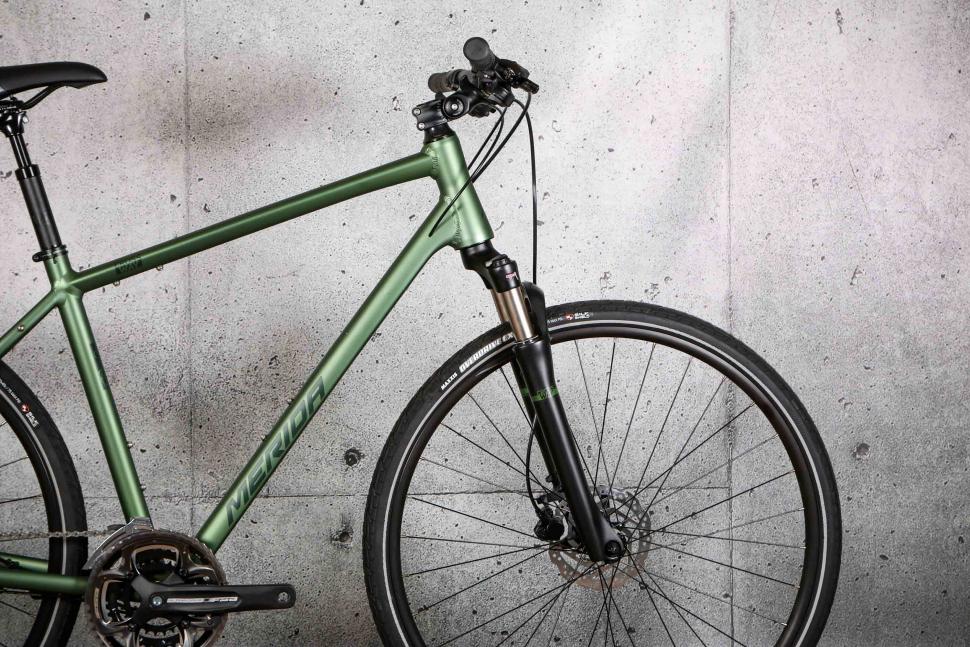
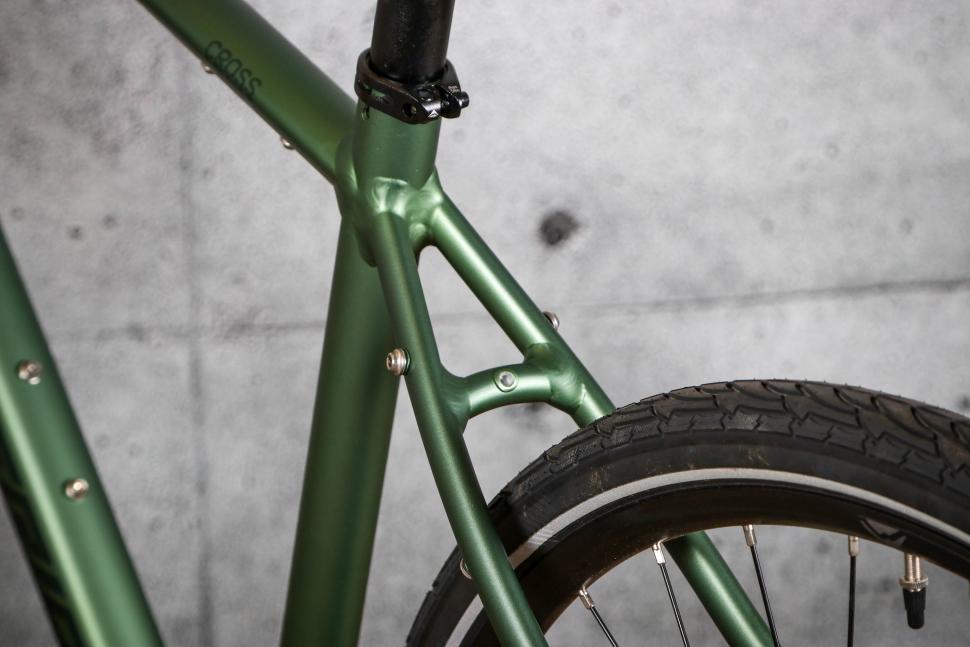

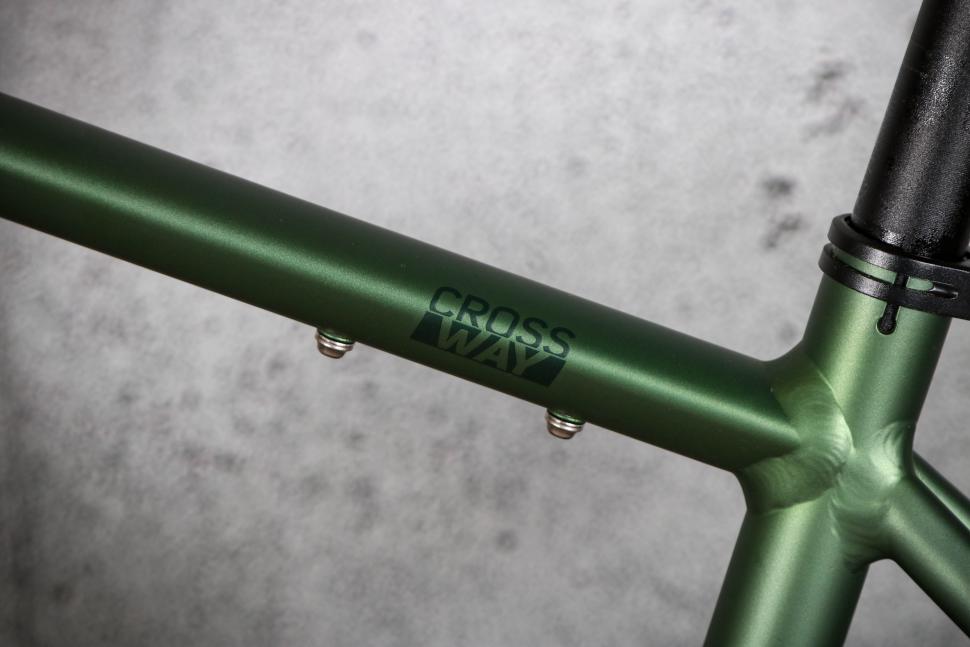

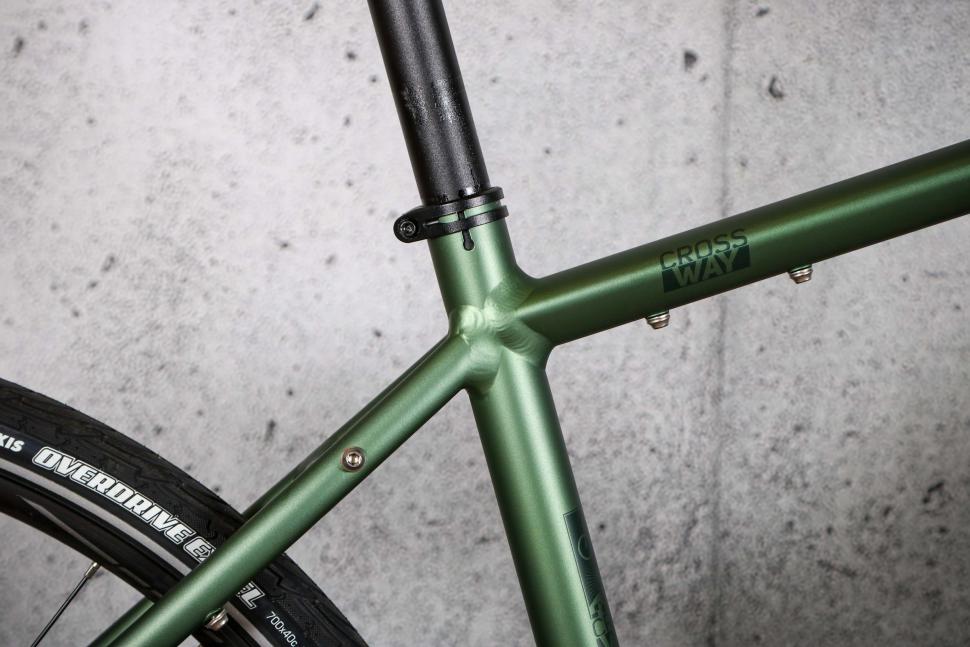


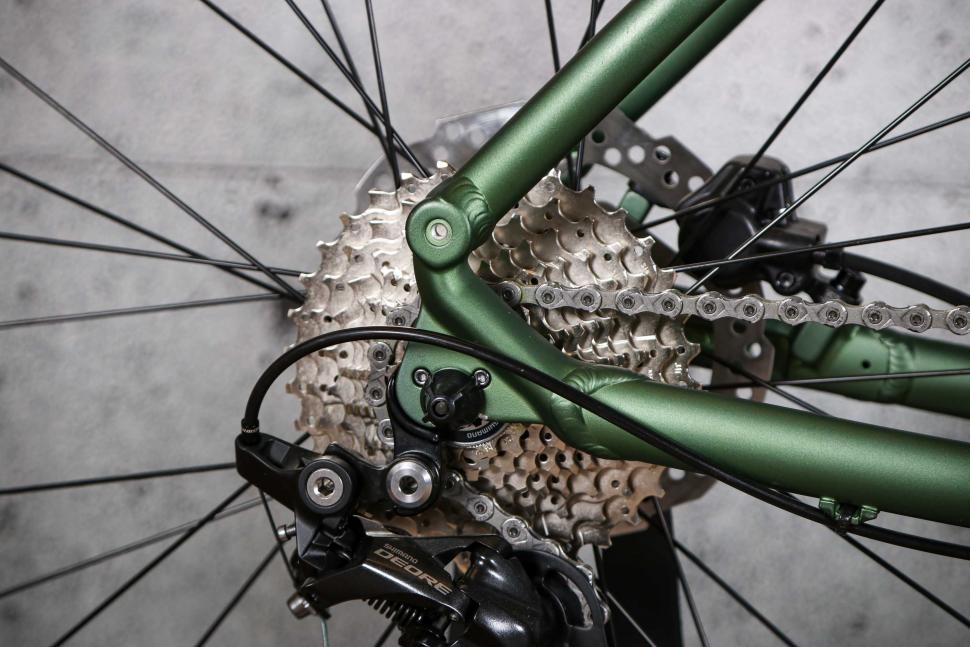
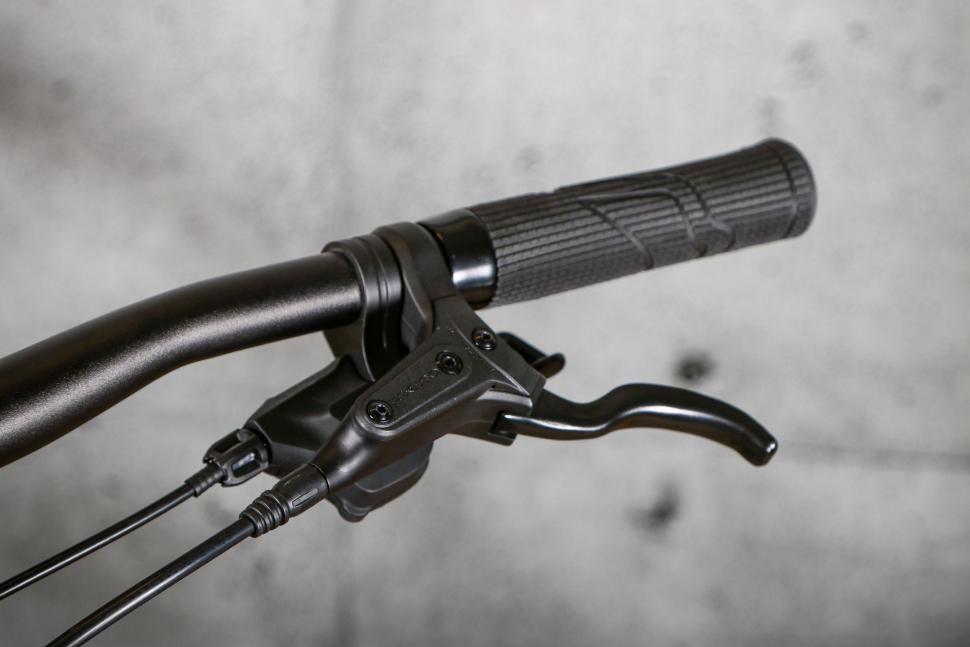
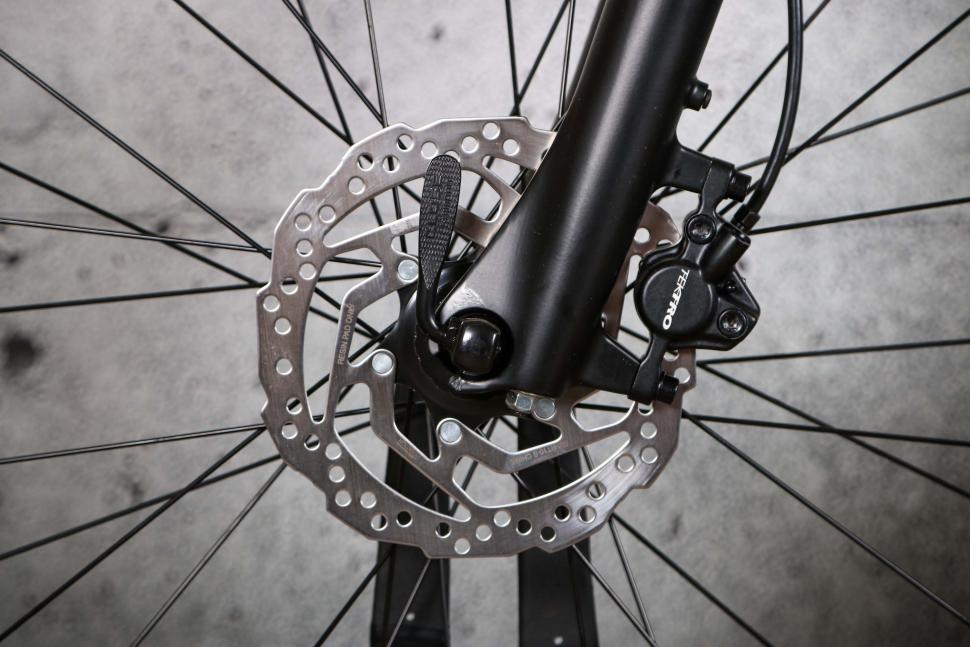
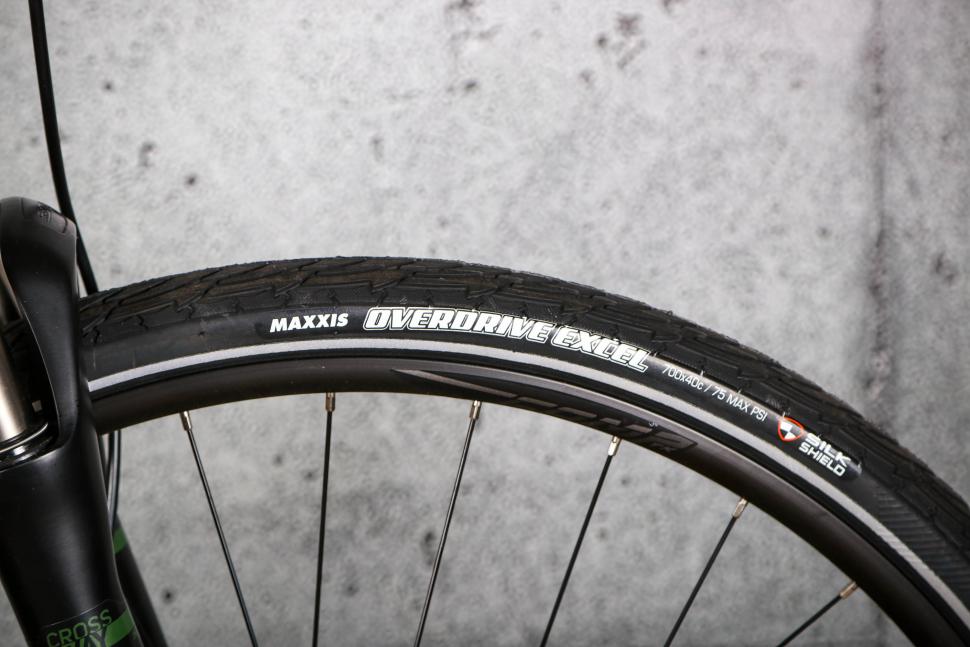
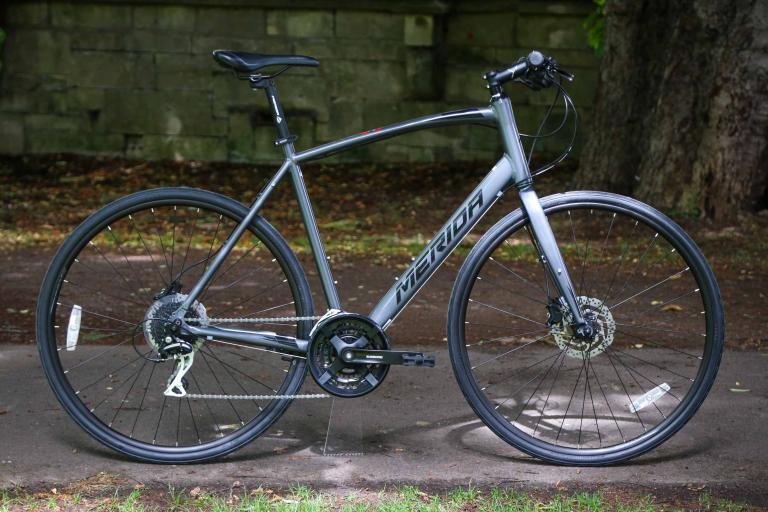
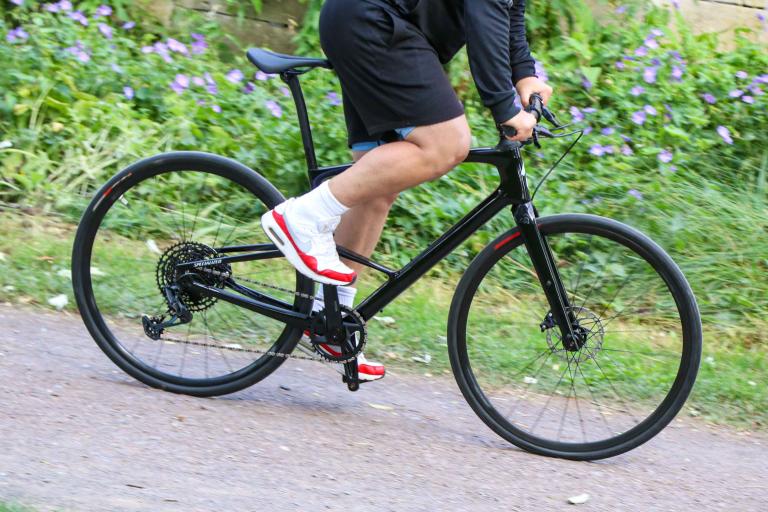
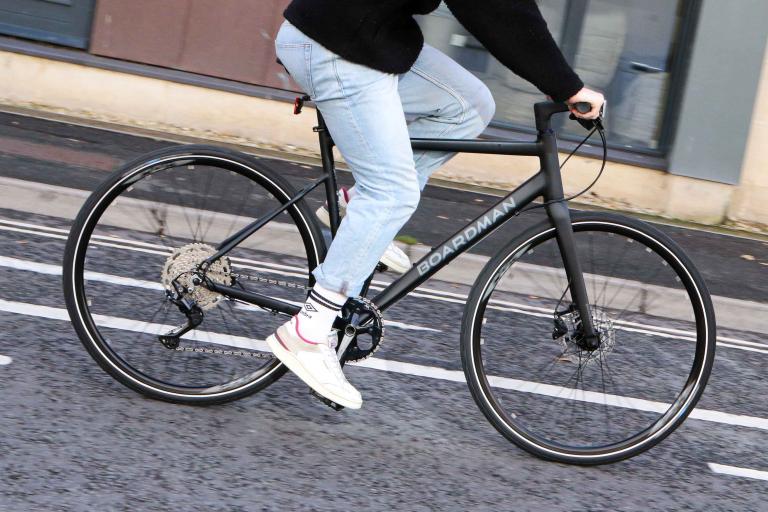
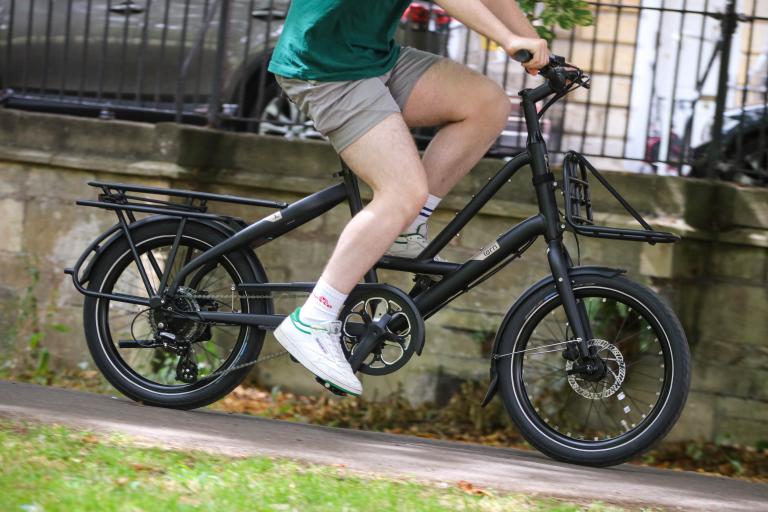
Add new comment
2 comments
You have to be a special kind of moron to find a triple chainset confusing.
Too easy. I won't bother, I'm sure someone else will.